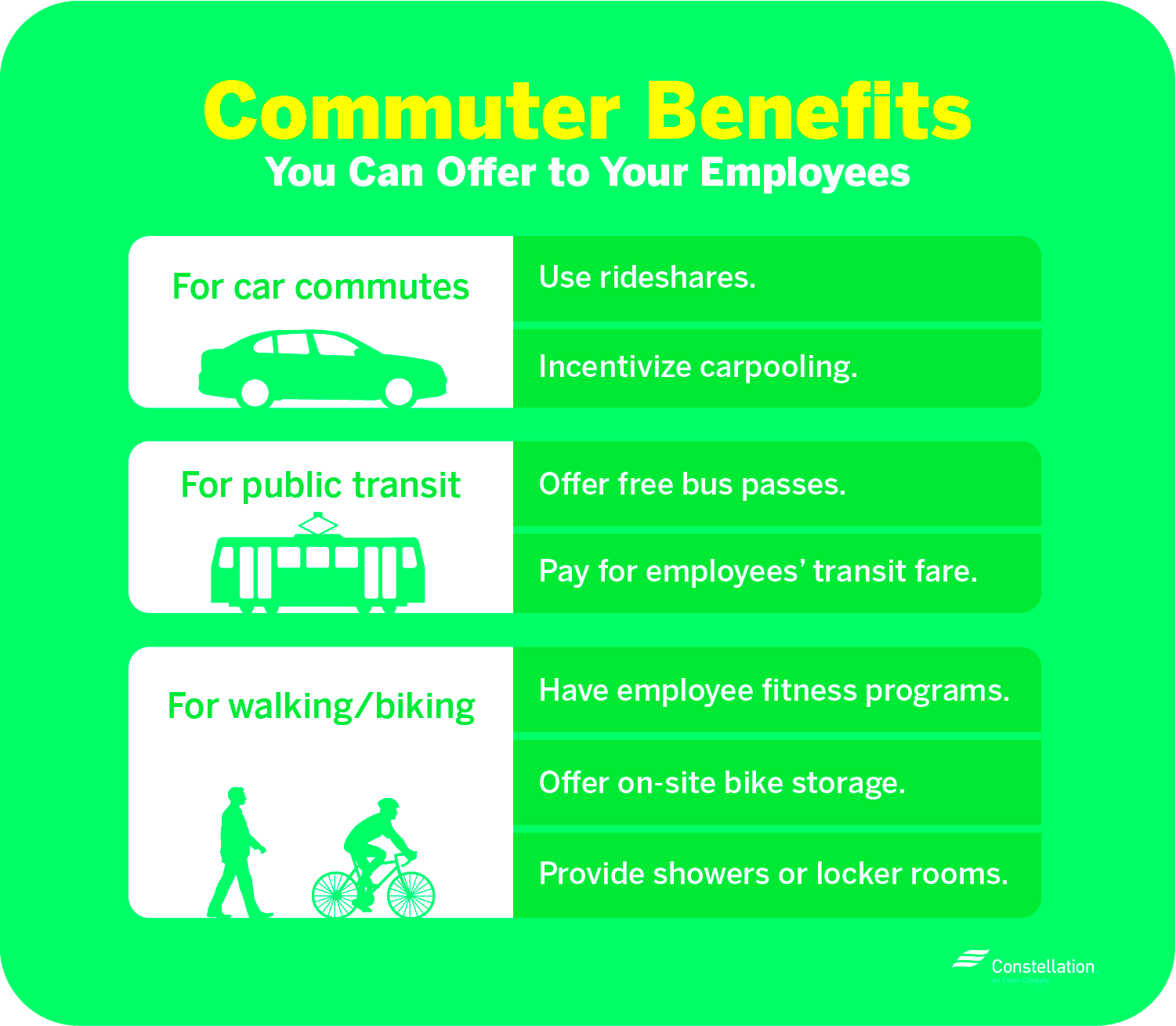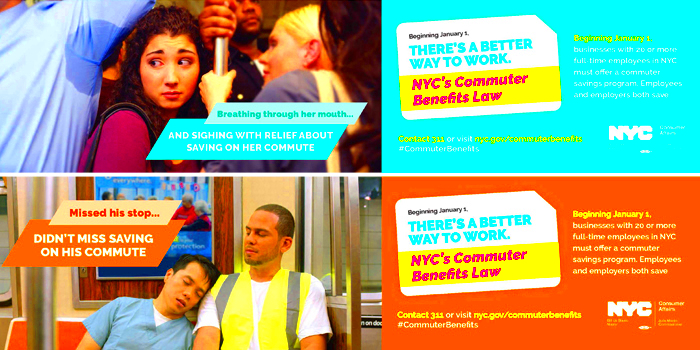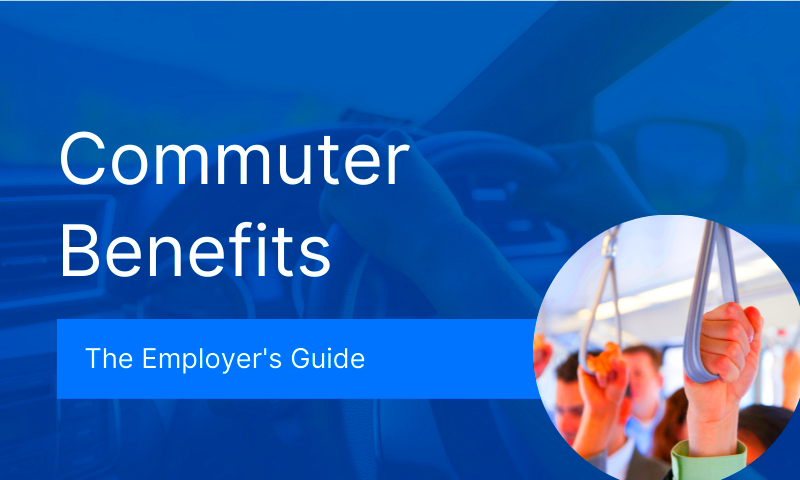New York Commuter Benefits Law: What Employers Must Know
The New York Commuter Benefits Law requires employers to offer their employees the option to use pre-tax income for commuting expenses. This law applies to businesses in New York City with 20 or more full-time employees. By offering these benefits, employers can help their staff save on taxes while reducing traffic congestion and environmental impact. It’s a win-win for both employers and employees.
Who Is Covered Under the Law

The law primarily applies to employers with 20 or more full-time employees working in New York City. Full-time employees are defined as those who work an average of 30 hours or more per week. Importantly, both for-profit and nonprofit organizations are required to comply. Employers must ensure that eligible employees are informed about this benefit.
Here’s a breakdown of who is covered:
- Employers with 20 or more full-time employees
- Full-time employees working 30 hours or more per week
- Both for-profit and nonprofit organizations
- Employees based in New York City
Part-time employees and businesses with fewer than 20 full-time employees are not required to comply, but they may still choose to offer commuter benefits voluntarily.
How Employers Can Offer Commuter Benefits

Employers can offer commuter benefits by setting up a pre-tax payroll deduction program. This allows employees to deduct commuting expenses such as transit passes, parking, and vanpool costs from their taxable income. The maximum amount employees can set aside is determined by the IRS each year. The process for employers involves a few simple steps:
- Establish a commuter benefits plan with your payroll provider or a third-party benefits administrator.
- Educate employees about the available benefits and how they can participate.
- Ensure deductions are processed correctly each payroll period.
Offering commuter benefits not only saves employees money on taxes but also helps employers reduce payroll taxes. The pre-tax savings for employees can be substantial, making this an attractive option for everyone involved.
Tax Implications for Employers and Employees

The New York Commuter Benefits Law offers significant tax advantages for both employers and employees. By allowing employees to set aside pre-tax income for commuting expenses, both parties can enjoy considerable savings. These benefits make a real difference in reducing taxable income and overall tax liability.
For employees, the amount they allocate toward commuting expenses—whether for public transit, parking, or vanpooling—is not subject to federal income tax, Social Security, or Medicare taxes. This means more take-home pay for workers. Here’s how it benefits both employees and employers:
| For Employees | For Employers |
|---|---|
| Reduced taxable income | Lower payroll taxes |
| More take-home pay | Potential savings on Social Security and Medicare taxes |
| No federal income tax on commuter benefits | Possible state tax savings |
Employers can save on payroll taxes, as the pre-tax deductions reduce the taxable wages of their employees. This can lead to substantial savings, especially for larger companies. Overall, implementing commuter benefits is a smart financial move for both employers and their staff.
Compliance Requirements for Employers

Employers subject to the New York Commuter Benefits Law must take specific steps to ensure they are compliant. The primary requirement is offering employees the option to use pre-tax income for commuting costs, such as public transit passes or parking. Failing to implement these benefits can lead to penalties and fines.
Here’s what employers need to do to stay compliant:
- Offer pre-tax commuter benefits to all full-time employees.
- Communicate clearly with employees about how the benefit works and how they can enroll.
- Ensure proper payroll processing to account for pre-tax deductions.
- Maintain records of the commuter benefits program and employee participation for potential audits.
Employers should also review their payroll systems to ensure they can accommodate the pre-tax deductions required for commuter benefits. By following these steps, businesses can avoid penalties and ensure they are fully compliant with the law.
Penalties for Non-Compliance
Employers who fail to comply with the New York Commuter Benefits Law face penalties and fines. The Department of Consumer Affairs (DCA) is responsible for enforcing the law, and they take non-compliance seriously. Initial violations usually result in a warning, but continued non-compliance can lead to financial penalties.
The penalties for non-compliance are structured as follows:
- First violation: Warning notice with an opportunity to correct the issue.
- Subsequent violations: Fines ranging from $100 to $250 per violation.
- Ongoing non-compliance: Additional fines of $250 for every 30-day period of non-compliance.
Employers should also note that any fines imposed can accumulate quickly if the violation is not resolved promptly. To avoid these costly penalties, it’s essential to implement the required commuter benefits program and maintain accurate records. Proactive compliance not only avoids financial risk but also helps employers foster a better relationship with their employees.
Benefits for Employees
The New York Commuter Benefits Law provides substantial advantages for employees by allowing them to set aside pre-tax income for commuting costs. This reduces the amount of income subject to taxes, which means more take-home pay. Employees who regularly use public transportation or pay for parking can save a significant amount of money each year. The program is not just about savings—it also encourages the use of sustainable transportation options, which can benefit the environment.
Here are the key benefits for employees:
- Tax Savings: Commuting expenses are deducted from pre-tax income, reducing taxable income.
- Increased Take-Home Pay: Employees keep more of their income by paying less in taxes.
- Convenient Participation: Employees can easily enroll in the program through their employer.
- Eligible Expenses: The program covers a wide range of commuting expenses, including public transit, parking, and vanpools.
- Environmental Impact: Encourages use of public transportation, reducing traffic and pollution.
Overall, the law makes commuting more affordable for employees and contributes to a greener, more sustainable city.
Steps Employers Should Take to Implement the Law
Employers need to take a series of steps to ensure compliance with the New York Commuter Benefits Law. Proper implementation not only helps avoid penalties but also boosts employee satisfaction by offering them valuable tax-saving opportunities. Setting up the program is straightforward, but it requires attention to detail to ensure everything runs smoothly.
Here’s what employers should do:
- Review Eligibility: Confirm that your company has 20 or more full-time employees in New York City.
- Select a Benefits Provider: Choose a payroll or third-party provider to administer the commuter benefits program.
- Communicate with Employees: Notify all eligible employees about the program, explaining how it works and the benefits of enrolling.
- Set Up Payroll Deductions: Ensure payroll systems are updated to process pre-tax commuter deductions for participating employees.
- Maintain Records: Keep accurate records of employee participation and deductions for audit purposes.
- Monitor Compliance: Periodically review your company’s program to ensure ongoing compliance with the law.
By following these steps, employers can easily set up the commuter benefits program and ensure they meet the law’s requirements.
Frequently Asked Questions
Here are some common questions employers and employees may have about the New York Commuter Benefits Law:
- Who is eligible to participate in commuter benefits?
Full-time employees working 30 or more hours per week are eligible for commuter benefits. Employers with fewer than 20 full-time employees are not required to offer the program but may choose to do so voluntarily. - What types of commuting expenses are covered?
The program covers expenses like public transit fares, parking costs, and vanpool services. The IRS sets annual limits on how much employees can set aside pre-tax for these expenses. - How much can employees save through the program?
Employees can save on federal income taxes, Social Security, and Medicare taxes by using pre-tax income for commuting expenses. The actual savings depend on individual tax rates and commuting costs. - What happens if an employer doesn’t comply?
Employers who fail to offer commuter benefits may receive warnings and, if not corrected, face fines of $100 to $250 per violation, with additional penalties for ongoing non-compliance. - Can part-time employees participate?
The law only requires benefits for full-time employees. However, employers may choose to extend the benefit to part-time workers.
These FAQs help clarify the most common concerns regarding the law, making it easier for both employers and employees to understand and take advantage of the program.
Final Thoughts on Commuter Benefits Law in New York
The New York Commuter Benefits Law is a powerful tool for both employers and employees. It allows employees to save money on commuting expenses while reducing their tax burden. At the same time, employers benefit from lower payroll taxes and the ability to offer a valuable benefit to their workforce. By encouraging the use of public transportation and other eco-friendly commuting options, the law also supports environmental sustainability.
Employers must ensure they comply with the law by offering a pre-tax commuter benefits program to eligible employees. Doing so not only helps avoid penalties but also fosters a positive work environment. Overall, the law creates a more affordable and eco-conscious commuting culture in New York City, benefiting both businesses and workers.


